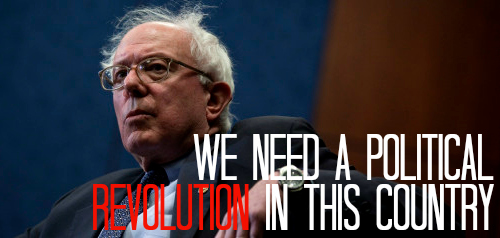Jeremy Corbyn’s successful election as opposition leader within the UK Labour Party’s shadow government has caused quite a lot of buzz within the broader anglophone political world. In that highly visible position he will be the one to detail Labour’s rhetorical and policy alternatives to the current conservative UK government. As arguably the most liberal person running a plausible campaign for the position, this suggests the possibility of a bold turn left within the Labour Party and arguably many centers of non-right political power in the UK. With Sanders, a registered independent and self-described socialist, running in the Democratic Presidential Primary in the US and similar rumblings within Canadian politics it seems as though further left political figures are coming out of the woodwork around the world, but especially in English-speaking circles.
These changes have not been without their critics of course, as many have decried the these comparatively leftist politicians are “unserious” or “unreasonable” compared to center-left figures they threaten to replace. As Matt Bruenig asked last week, there’s a structural question that raises: what exactly are further left politicians supposed to do? In both the party leadership elections within UK parties and in the presidential primaries and generals in the US, the systems offer only two choices for them: to compete within the center-left in in-party elections or outright against it as a separate party. In either case, they are inevitably challenging the center-left for control of policy, and face criticism for jeopardizing the advancement of a center-left alternative. It’s presented as a kind of making the perfect the enemy of the good by the center left, but as a necessary test of a careful approach’s merits by those to the further left.
Of course, as Bruenig points out, that push-and-pull between gradualism and radicalism within a broader left coalition assumes that the center-left and left share common goals. Ultimately politicians like Sanders and Corbyn want to entirely restructure society in a way that dramatically recontextualizes or even overhauls the procedures under which they compete with more centrist candidates. Is that true of their rivals?
 From here.
From here.
Beyond these issues of political process, it seems relevant to ask what counts as “reasonable”. The comparatively moderate portions of left wing coalitions treat it as a self evident truth that they’re more electable and realistic. Both the US and UK are facing epidemic levels of disengagement. It’s unsurprising that that’s the case given how parties from center-left on towards the right have largely failed to tackle some of the most systemic difficulties for the average person – global climate change, the economic downturn, and globalization. As some have pointed out, its specifically the poor who are most likely to disengage from electoral politics, and that’s at least in part because there are few to no parties or major figures addressing their concerns with viable solutions.
Arguably the recent political success of comparatively far right politics in both the US and UK (and many other countries) have demonstrated the power that rightwing parties can harness simply by offering a response to those problems, not even necessarily a logical or actionable one. In general, lower income voters still skew towards left-center parties, but that exists within a general vacuum of more leftist alternatives.
An electoral landscape shaken up by higher rates of participation would drive political discussion most likely towards the left, but that would threaten the fragile consensus that has allowed the center-left to become so powerful. Corbyn and Sanders are essentially moderate compared to the politicians who might follow them if they’re able to enact policies that would enable greater political participation. The need to prevent that sort of constituency “escape” to the left is a reason for the center-left to make common cause with the center and right and frame themselves as an end-point of reasonableness even if that reinforces on a rightwing view of the broader political world and discourages leftwing activism. Power is more important than change, for some.